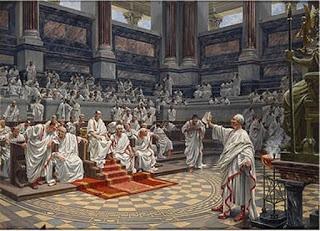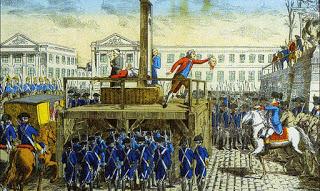Democracy cannot consist solely of elections that are nearly always fictitious and managed by rich landowners and professional politicians.
— Che Guevara, 1961

How the founders imagined a republic to work.
Part one was sort of a trick question since both systems embody these rules. It is non-sensical to try and distinguish between these systems in modern times.This wasn't always the case as the Founders of the United States often criticised democracy, which in their time tended to specifically mean direct democracy, often without the protection of a constitution enshrining basic rights. James Madison argued, especially in The Federalist No. 10, that what distinguished a democracy from a republic was that the former became weaker as it got larger and suffered more violently from the effects of faction, whereas a republic could get stronger as it got larger and combats faction by its very structure.
The founders equated "democracy" with what we would call "anarchy", but they were working with ideals, not realities.
What was critical to the American version of a republic, according to John Adams, was that the government be "bound by fixed laws, which the people have a voice in making, and a right to defend." The rule of law is the concept where the laws and procedures apply equally to all citizens which was the important factor in adopting the US Constitution.
The problem is that the founders didn't really understand republics, or perhaps were too fond of idealising them. The French philosopher who influenced the founders, Montesquieu, classified both democracies, where all the people have a share in rule, and aristocracies, where only some of the people rule, as republican forms of government in his "The Spirit of the Laws". Montesquieu was combining two very different forms of government into his concept of a republic.
This discussion should have started with the disclaimer that the modern type of "republic" itself is different from any type of state found in the classical world, or during the the concept bandied about during "the Enlightenment". The most important thing about real classical republics, they were either conquered by empires or became ones themselves. This becomes important in refuting Federalist #10: republics are not inherently stable, which was demonstrated in post-revolutionary France (the First Republic).

The reality: "We are not ze democracie, We are ze republique!"
The French demonstrated that the founders concept of republics was a ungrounded in fact at roughly the same time the Constitution was adopted. Despite a strong guarantee of rights, the Déclaration des Droits de l'Homme et du Citoyen de 1789, the First French Republic deteriorated into the Terror and then the rule of Napoleon Bonaparte.
Another point, The term republic originated from the writers of the Renaissance as a descriptive term for states that were not monarchies, which gives a lot of latitude. On the other hand, now one can have a constitutional monarchy that is a democracy. This is important since Democracy comes from the Greek: δημοκρατία , Demokratía, which is literally "rule of the commoners". Democracy in modern usage, is a system of government in which the citizens exercise power directly or elect representatives from among themselves to form a governing body, such as a parliament. I think a lot of people who try to differentiate between democracy and republic are really thinking of oligarchy, which is indeed neither system.
So, republics turn out to be more prone to problems despite the founders' beliefs as a comparative study of US, French, and British history post 1789 demonstrates. And democracies tend to be far more stable than the founders believed.
The upshot is that the modern definition of a republic (from Latin: res publica, "public matter") is a sovereign state which is organized with a form of government in which power resides in elected individuals representing the citizen body and government leaders exercise power according to the rule of law. Presently, the term "republic" commonly means a system of government which derives its power from the people rather than from another basis, such as heredity or divine right. But it can even be dangerous to assume a something calling itself a republic, or democracy, truly is one (e.g., Democratic People's Republic of Korea or Democratic Republic of Congo, which both happen to be dictatorships).
While hereditary and divine right were once the defining factor in monarchies, they no longer are. United Kingdom, Spain, the Netherlands, Belgium, Scandinavian countries, Thailand, Japan and Bhutan turned powerful monarchs into constitutional monarchs with limited or, often gradually, merely symbolic roles. In other countries, the monarchy was abolished along with the aristocratic system (as in France, China, Russia, Germany, Austria, Hungary, Italy, Greece and Egypt). An elected president, with or without significant powers, became the head of state in these countries. In other words, Constitutional Monarchies tend to be democratic.
If there is any real advantage to a republic, it would have to be that it can eventually evolve. But one has to be careful how it evolves as the French and US examples have shown. The French revolution produced a republic that was highly factionalised and unstable. France's transition to democracy has been a rough road. The US also has its own problems, which includes some people believing there is a "right to rebellion", which is false (US Constitution, Article III, Section iii).[1]
Likewise, the US is ridden with factionalism which can hinder governmental function. I find it interesting that people who try to make a difference between republic and democracy usually tend to be the ones that support a crippling factionalism. In fact, I find the people who try to make that distinction don't support true republics or democracies, but are more interested in an autocratic system.
Perhaps this shows where their difference comes since the people who wish to hinder government by non-funding parrot the phrase that there is a difference between a republic and a democracy. They are willing to stop governmental function. On the other hand, Parliamentary democracies dissolve when they cannot pass spending bills since in the Westminster parliamentary systems the defeat of a supply bill (one that concerns the spending of money) is seen to automatically require the government to either resign or ask for a new election, much like a no-confidence vote. A government in a Westminster system that cannot spend money is hamstrung, which also called loss of supply.
Anyway, I worry whenever anyone tries to make a distinction between these two systems since there should be none in practice. I would add that people who do try to make that distinction are aware of the anti-democratic nature of the US system and are comfortable with it. We should not end up with oligarchy pretending to be a republic.
But a country cannot and should not enforce political systems on others that it does not implement at home. The US needs to start living up to its self image as a democratic-republic.
[1] Which means the proper "threeper" symbol should be "III.iii" for that article and to show they are not patriots following the constitution, but people being seditious and acting unconstitutionally.
